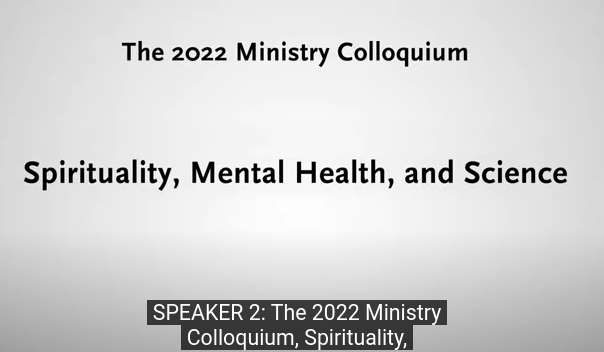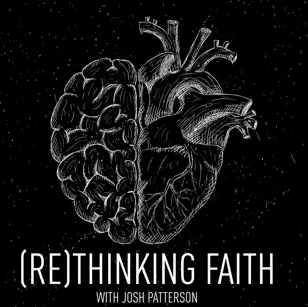Greetings, WesleyNexus Colleagues:
We are in the middle of “Mental Health Awareness” month, but how many of us are paying attention?
The media tells us that we are experiencing a “mental health crisis” in the U.S., but most of us go about
our daily routines without any sense that such a crisis exists. Politicians refuse to take any action to
address the epidemic of gun violence, but each time there is a mass shooting (almost daily, in fact) the
usual comment is “guns are not the problem – we need more attention to mental health.” But what
might be done, and by whom, and under what authority? No easy answers out there. Couple this with
the rise of weather emergencies from global warming – wildfires, tornadoes, floods – and whole
communities face crisis. Across the spectrum, we can easily see that we need hard lessons in anger
management. Many people experience anger after a disaster. They may feel angry about the damage the
disaster has caused, changes to their short- or long-term plans, the long recovery process, financial
worries and problems, and their reactions to the disaster are hard to deal with. Survivors of disasters
may feel angry at individuals and organizations they consider to be partly (or entirely, in an incident of
mass violence or natural disaster) responsible for the destruction.
Anger is something people in all societies around the world experience. When people get angry, they
may experience these changes: their heart may beat faster. their blood pressure may increase; their
bodies may release adrenaline; they may experience digestive issues; they may have difficulty sleeping.
But anger has many benefits, including helping people identify and begin to address problems in their
lives and giving them energy to react to threats. It also has its downfalls. It has been linked to heart
disease, high blood pressure, insomnia, problems with digestion, headaches, depression, and anxiety.
Anger may lead people to engage in behavior that involves risk, such as use of alcohol and other toxic
substances.
When one is confronted with disaster or stress, there are a few tips that an individual may follow to
mitigate anger and depression: Pay attention to cues that you are getting angry, and when you notice
them, take a break. You may want to count to 10, take a quick walk, or try some exercises for
relaxation. When you’re angry with a person for some offensive behavior, in a calm mood try to use
“I” statements and avoid the words “always,” “never,” and “should.” If you find you are often becoming
angry in a specific situation, you may want to consider ways to focus on areas of life you can control.
Use forgiveness as you can and as it makes sense. Forgiveness may take time, but if you can experience
it, it may enhance your relationship with the person you forgive.
Finding ways to connect with the people around you may help you get through a difficult situation. You
can connect with your community in several ways, including: talking to someone you trust about the
situation; seeking out a support group through community centers or disaster recovery programs;
continuing to participate in groups with people facing a similar crisis; and connecting with your
community in ways that don’t have anything to do with your own situation, by helping others..
Perhaps the best strategy is to practice healthy habits: It may be hard to keep up with healthy habits
after a disaster when your access to resources may be limited, and you may not be living at home. Do
your best, and give yourself credit for all you do. Be physically active; get enough sleep; eat healthy;
avoid drugs and alcohol; seek professional help.
Contents:
IRAS Webinar: Overshoot: The World beyond 1.5°C
Science and religion can work together to boost mental health outcomes by Taylor White
Spirituality, religiousness, and mental health
The Encounter By Tori E. Owens
The Inner Life of the Cell: Animation and Explanation
Bonhoeffer & the Future of Faith – With Jeffrey Pugh
Thanks continue to go out to our generous contributors. We encourage you to share comments, articles and insights that will help us all weather these difficult times.
Blessings,
Maynard Moore and the rest of the WesleyNexus team
****************************************************************************************************

Overshoot: The World beyond 1.5°C
June 28, 2023, at 6:45-8:15 PM Central time7:45-9:15 PM Eastern time
(NOTE: that this is a different time than our usual webinars)
Presentation Overview:
For the sake of future generations, we are morally compelled to pursue an emissions pathway that would limit climate change to no more than 1.5°C. We are nonetheless likely to fail. This talk will focus on why the climate limitations proposed in the Paris Agreement will probably prove unattainable and examine the environmental, political, and ethical implications of overshooting those goals.
About the June 28th presenter:

Wake Smith is a Research Fellow at the Harvard Kennedy School. He is also a Lecturer at Yale, where he teaches a course on climate engineering. That course material was published in book form in March 2022 by the Cambridge University Press under the title Pandora’s Toolbox: The Hopes and Hazards of Climate Intervention. He has published papers on the aeronautics, costs, and governance of solar geoengineering and developed preliminary designs for high altitude research aircraft. He finished his business career in private equity with New York based New State Capital, and previously served as: Chairman and President of Pemco World Air Services; Chief Operating Officer of Atlas Air Worldwide Holdings; and President of the flight training division of The Boeing Company. He holds a BA in History from Yale and an MBA from Harvard.
****************************************************************************************************
The Institute on Religion in an Age of Science (IRAS)IRAS is an international society of learners and thinkers, natural and social scientists, philosophers, theologians and people from many other backgrounds and professions. IRAS cultivates a community of informed and respectful inquiry and dialogue at the intersections of science with religion, spirituality and philosophy in service of global, societal and personal well-being.IRAS Webinar SeriesFor 65 years, The Institute on Religion in an Age of Science (IRAS) has held summer Conferences on Star Island, off the coast of Portsmouth, New Hampshire. Due to the pandemic, we had to postpone our 2020 Star Island conference until the summer of 2021. In order to continue to engage with IRAS themes and the IRAS community, with Star Island’s generous support, we launched a live webinar series: Science, Religion, & Society.
ttps://www.iras.org/webinar-series.html
****************************************************************************************************
Science and religion can work together to boost mental health outcomes by Taylor White

****************************************************************************************************
Spirituality, Mental Health, and Science (Harvard Divinity School, November 9, 2022)

The 2022 Ministry Colloquium at HDS, “Spirituality, Mental Health, and Science,” featured a talk from Dr. Lisa Miller, author of The Awakened Brain and Professor of Psychology and Education at Teachers College, Columbia University. In this lecture she explored the relationship between spirituality and physical well being.
****************************************************************************************************
Spirituality, religiousness, and mental health: A review of the current scientific evidence by Giancarlo Lucchetti, Harold G Koenig, and Alessandra Lamas Granero Lucchetti

The number of studies assessing spirituality/religiousness (S/R) and mental health has been increasing over the past several decades, resulting now in a large body of evidence suggesting an impact of S/R. However, there remain many gaps in the literature that need filling in this area. There are numerous practical clinical applications that psychiatrists and other mental health professionals should consider implementing in clinical care. This will lead to a more holistic and patient-centered form of mental health care.
https://www.ncbi.nlm.nih.gov/pmc/articles/PMC8462234/
****************************************************************************************************
The Encounter By Tori E. Owens (Center for Open and Relational Theology)

Each person’s story is unique in the complex layering of personal hurts and traumas, family history, and perceived inherited generational “curses,” yet so much the same in their courage, vulnerability, and intention in showing up for therapy, often for the very first time. It begins the same for most everyone: introductions after having emailed or texted or briefly talked on the phone, sometimes in person, but these days, most times via telehealth. Then I say something like, “Tell me a little bit about what brings you here,” or “What’s on your mind?” or a gentle “Talk to me.” Sometimes it’s a quiet: “I’m here.”
****************************************************************************************************
The Inner Life of the Cell: Animation and Explanation (Open Horizons)

The inner life of a cell is a world in its own right. Its inhabitants include the nucleus, mitochondria, endoplasmic reticulum, Golgi apparatus, lysosomes, peroxisomes, cytoskeleton, ribosomes, cell membrane, vacuoles, chloroplasts (in plants), centrioles, nucleolus, and microfilaments. These component parts have characteristics of their own but simultaneously work together in incredibly complex ways. And, like everything else, they are in process with creativity of their own. They look very different from us. They are aliens, albeit within us not outside us. We need not look up into the heavens in search of alien life, we can also gaze down into living cells. Microscopes can be our guide. And if we are theological adventurous, we might also explore the possibility that the very soul of the universe, God, is made in the image of a cell. Or the other way around, if you prefer. Maybe God is the inclusive whole, with subjectivity of God’s own, in which the universe lives and moves and has its being. Maybe as mitochondria are to cells, we are to God. Maybe God is the not a thing but rather a living Cell, with mind-like properties, and no boundaries such that, from God’s perspective, there is much that is beautiful, unique, and different, but there are no aliens. – Jay McDaniel
****************************************************************************************************
Bonhoeffer & the Future of Faith – With Jeffrey Pugh (Rethinking Faith Podcast)

This week I was joined by Dr. Jeffrey Pugh. Pugh is a Bonhoeffer scholar and we had a beautiful conversation about Bonhoeffer and what he may have to say to us today.
Dr. Pugh will be cohosting a class with Dr. Tripp Fuller on Bonhoeffer and the future of the faith. The class will feature both Pugh and Fuller along with 5 other Bonhoeffer scholars.
Resources:
Join the Class!
